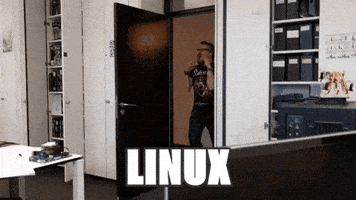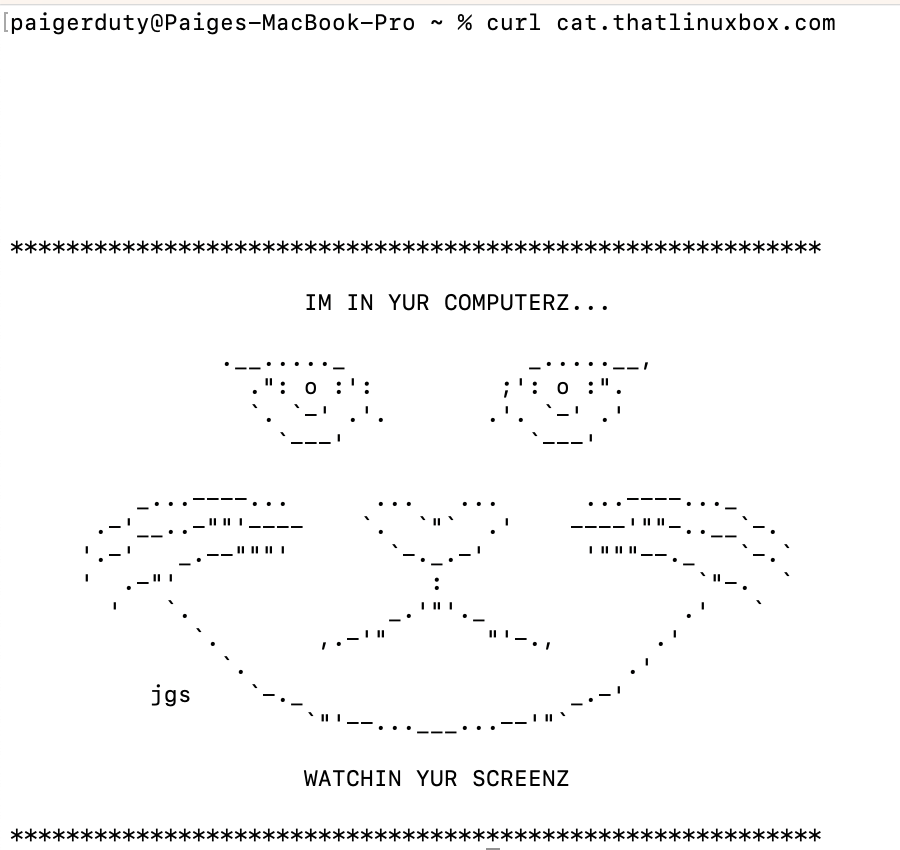Recap: SCaLE Conf

wowow its been a minute but as OpenSourceSummit approaches I wanted to share a recap from my time at another open source conf - SCaLE (aka SoCal Linux Expo aka my new fave conf)

SCaLE aka the Southern California Linux Expo is a community powered conference covering all things Linux, free and open source software (FOSS). The 20th conference was held at the Pasadena Convention Center over the course of several days this past March.
I've been a long time user of open source technology and even gotten to watch behind the scenes as OpenTelemetry was birthed from the merger of OpenCensus & OpenTracing. Truly y'all the amount of labor from SO MANY people and organizations to get OTel where it is today is astonishing. People sit in rooms and talk about specs, do you know how dry yet contentious some of those conversations are?! I do! Yet somehow I still didn't consider myself a part of the open source community and SCaLE changed all that 💗
Honestly I could have spent a whole day walking around the exhibitor hall where there were representatives from non-profit organizations, student groups, open source projects aaaaand even some corporations.
I had many fan-girl moments including but not limited to
- loading up on a mega assortment of Jenkins stickers (um the Jenkins trans flag sticker is amazeeee props to the team) and sharing my Halloween costume plans to transform into Devil Jenkins
- chatting with Harlan Stenn, one of the maintainers of NTP (!!!) and learning about other critical work taken on by the Network Time Foundation
- getting a roadmap from zero to license to HAM Radio from the folks at Amateur Radio Emergency Data Network (AREDN)
Since this was my first SCaLE I didn’t know what the weekend would have in store and was delighted to discover the spirit of community flowed freely. In one building there was a mysterious door labeled “NOC” (Network Operations Center), something I have only ever heard stories about. My curiosity got the better of me and I peeked in to see if I’d be allowed to get a brief glimpse of the inner workings. A very welcoming security engineer, David Lang, let me into the room and answered the zillion questions running through my mind. He shared that the volunteers had laid out about 5 miles of cables so the conference would have internet access. My excitement could not be contained - this is where the action was! Next year I’ll head down early and volunteer my time to help make some of this magic happen!
SCaLE is a large enough event that it was the umbrella for several other co-located community events such as Kubernetes Community Day LA (KCD) and DevOpsDays LA which I spoke and participated at.
Kubernetes Community Day
KCDs are community organized events that bring together adopters and technologies from OSS and cloud native communities for education, collaboration, and networking. They are held all over the globe in-person and virtually - find the closest KCD to you here: https://community.cncf.io/chapters/
This year SCALE hosted the inaugural Kubernetes Community Day(s) for the Los Angeles area! The first day consisted of workshops followed by another day of single-track talk sessions.
Day 1 featured workshops spanning most of the development workflow. Starting with Intro To Instrumentation (which I taught!) showing how to use OpenTelemetry SDKs to instrument code and visualize and interpret distributed traces. Then moving to deploying changes with GitOps - Collaborating at Organizational Scale facilitated by Leigh Capili and Eddie Zaneski. Which covered the origin and principles of GitOps before diving into hands-on practice with Flux and GitHub. Before deploying that containerized application you’ll want to ensure you trust and can trace what exactly you’re getting with the image. Bob Killen and Jeffery Sica provided an in-depth look at containers, overview of supply chain security concepts, demo’d sigstore and how container signing automation works with Kubernetes in Supply Chain Security Tooling. Great! You’ve got observable code, adopted GitOps and have a traceable supply chain - time for production! If your organization includes Platform Engineering you may find a need to extend the definition of a Kubernetes application. Fear not! James McShane gave a lay of the land in Developing Production Controllers with Kubebuilder. Covering considerations for resource reconciliation, API management and error handling you’ll write, test and deploy a Kubernetes controller using the controller-runtime.
The second KCD featured two talk tracks covering a broad range of topics from networking to RBAC. Two that caught my attention were:
- Role Based Access Control can be one of those dry topics but Leigh Capili found a way to liven things up - a must watch! He asks and answers the sometimes dreaded question “Can I get some access?” RBAC 101: Basics, Misconceptions, and the Real World
- Interested in some anti “best practice” advice? Watch Noah Kantrowitz deliver Minimum Viable Kubernetes which includes the suggestion that Kubernetes could in fact be useful for small projects. You’ll laugh knowingly at the real talk like “Prototypes are forever, we all know this” and get insights into standing up K8s.
You can find all of the KCD LA talks on this YouTube playlist: https://www.youtube.com/playlist?list=PLgQMOXyI7yImUT4O5d7NFaK2XaGs_Wo03.
DevOpsDays LA
SCaLE was also host to another community event - the 12th DevOpsDays LA! The lineup did not disappoint, opening with author John Willis breaking down his book Investments Unlimited, a spiritual successor to The Phoenix Project. From the lightning talk round, Happy Agents, Happy Customers draws on Kat Gaines’ deep experience measuring and analyzing the customer experience. My talk, Taming Feral DevOps, delved into the dark side of devops, when burnout runs rampant and strategies for sustainable operations. Bryan Cantrill took it home with The Forgotten Operator rapidly covering the history of modern computing and sharing the plight of the on-prem operator.
You can find the full day’s talks on the playlist: https://www.youtube.com/playlist?list=PLgQMOXyI7yIlRgZzJHv-f_b_apnDWs06W.
SCaLE
After a couple focused days about Kubernetes and DevOps, SCaLE officially kicked off on Saturday and the convention center was buzzing with even more excitement and camaraderie as more computer pals joined the fray.
Observability Track
Cost cutting is the topic du jour in the enterprise and OpenCost, a CNCF Sandbox project, is here to bring cost clarity to your clusters in the cloud. OpenCost models current and historical Kubernetes cloud spend and resource allocation by service, deployment, namespace, labels, and more! Three cheers for efficient resource utilization! Catch up on the details presented by Matt Ray in Kubernetes Cloud Cost Monitoring with OpenCost & Optimization Strategies.
To my delight there was a buffet of OpenTelemetry talks to choose from. Sharing the story of how Pluto TV wrangled observability tool sprawl by standardizing instrumentation with OpenTelemetry, Paak Quansah’s Deploying OpenTelemetry Organizationally: From Proof of Concept to In Production at Scale highlights one of the powerful aspects of open-source instrumentation - straightforward and simpler vendor evaluations! Pluto TV was able to ship observability data to multiple destinations with ease. They were then able to analyze and compare features across these destination platforms before making a final decision, all without re-instrumentation. We are living in the future!
If you’re feeling the strain on on-call Matt Davis covered the why and the how to train new on-call engineers in On-Call Reprised and Rejuvenated. He notes a recent informal survey where
- 25% of organizations reported no on-call training at all 😱
- 30% indicated training was available as a wiki (with maybe a one-time overview session) 🙅♂️
- 40% reported all of the above with a "shadow shift" on top 👥
- 5% said they performed some kind of scenario or tabletop practice outside of incidents. 👏🏻
While I am not surprised by these statistics I am looking forward to the future where excellent on-call training is not the exception but the norm. Unprepared on-call responders makes for an even more stressful incident - of course you can’t train everyone for every single scenario which is where improvisation comes into play. Drawing parallels between jazz groups and incident response you’ll be convinced of the power of collaborative training!
Next year you can find me at SCaLE 21x volunteering with the NOC, signing up for the CTF and nerding out over the joys of open source technology!
CAT TAX

Member discussion